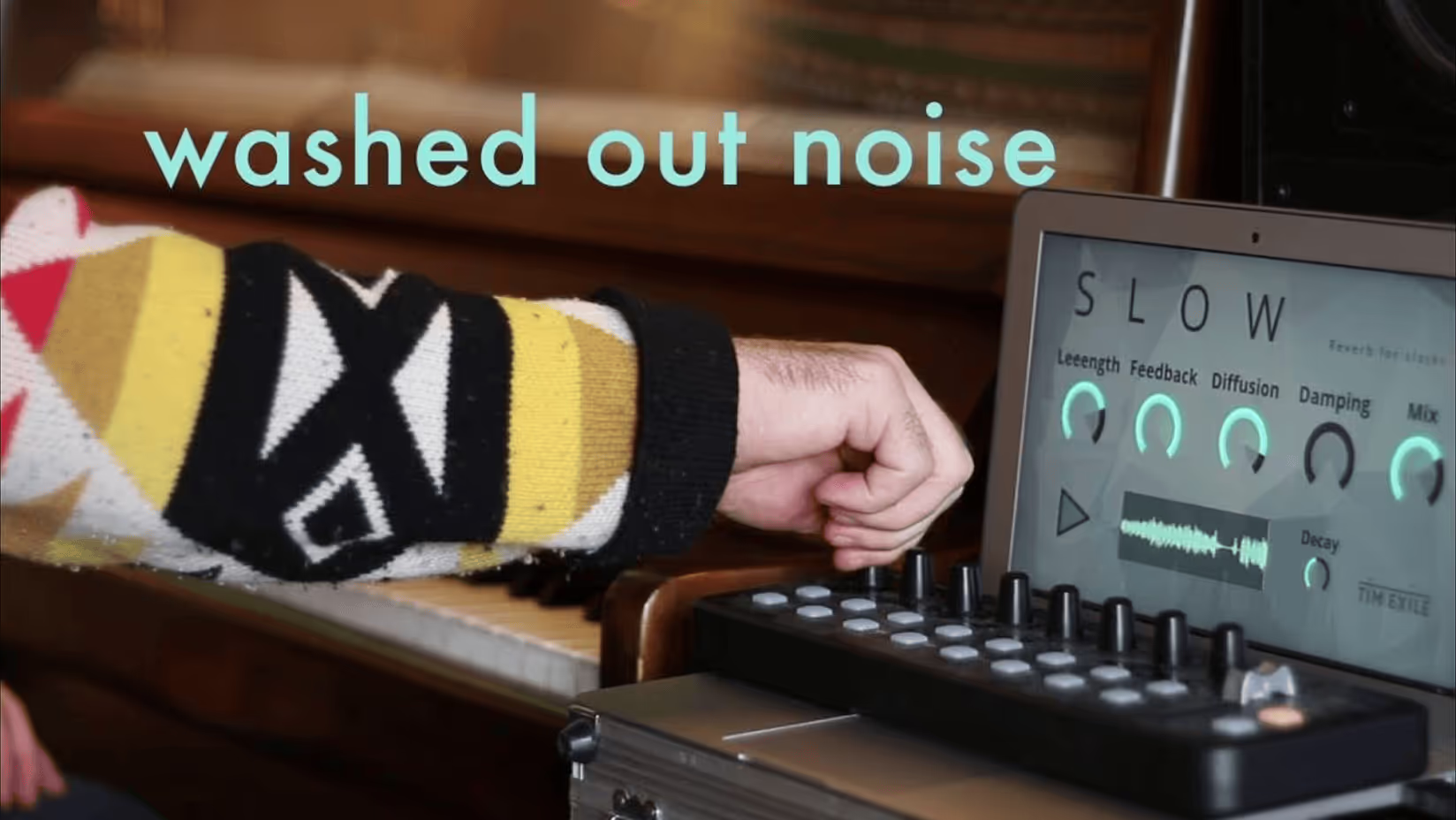
S L O W
S L O W

A Super-slow ReverbFor sloths... and you
A unique approach for a stand‑out sound
SLOW uses more delay lines which are longer than a standard reverb, resulting in some satisfyingly weird behaviour that’ll bring unique textures to your productions.

S L O W represents the journey from a single data point to a global pattern of masses of concurrent data.
By slowing down the reverb algorithm you can hear the individual reflections as they build up from individual sonic events to a wash of millions of events with a collective sonic imprint. Put your knitwear on, plug your mic in and drench this evening in a sea of drones…
System Requirements
A Native Instruments Reaktor Licence is required to run SLOW without limitations. If you have Native Instruments’ Komplete bundle you will have this already. You can run SLOW in the free Reaktor Player but it will time out after 30 minutes and you won’t be able to save your work. Reaktor runs on Windows or MacOS.
In the box
- Washed out noise
- extended Delays
- extreme Diffusion
The Story


SLOW actually started life on a long-haul flight back from Beijing. I had been going around IBM data centres as part of a collaboration with them, sampling sounds on a portable recorder and then feeding it into my Flow Machine instrument in an attempt to sonify various uses of their technology.
As another part of the project they had me come up with algorithms that would demonstrate how their processes worked. They worked with a company that was doing a lot of real time data processing, and I had the idea to create a reverb algorithm to represent the power of one single event, with a transition that would spawn thousands of times until what you hear is more of a sonic imprint of the sound and its spectral trend, rather than the sound itself.
It ended up sounding pretty cool so after the project was over I decided to package it up so that everyone can use it!

